The introduction should briefly explain that the article focuses on 5-letter words ending in “CH” and their significance, particularly for word games like Wordle, Scrabble, and crossword puzzles. It should also outline what the reader can expect to learn, such as gaining a list of these words and strategies for using them effectively in games.
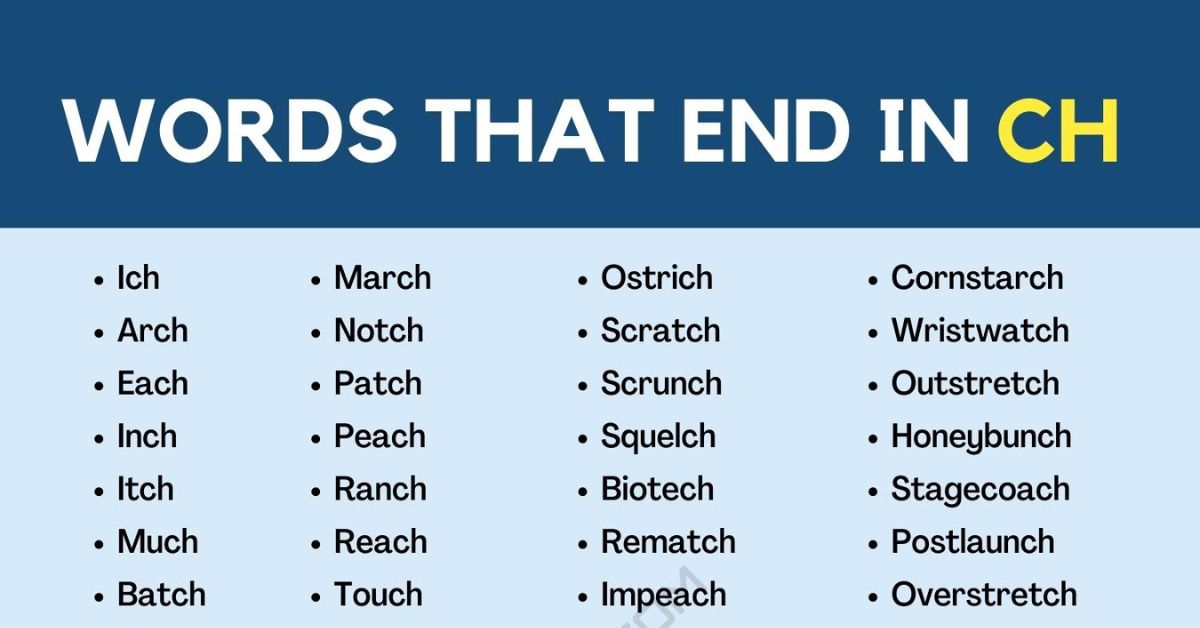
Common 5-Letter Words Ending in “CH”
When it comes to 5-letter words ending in “CH,” you’ll find that many of them are relatively common in everyday language and can be highly useful in various word games. Here’s a breakdown of some of these words, along with their definitions and examples of usage:
BATCH
- Definition: A quantity or group of items produced or handled at one time.
- Example: “The bakery just finished a fresh batch of cookies.”
CATCH
- Definition: To seize or grab something that is moving or has been thrown.
- Example: “She managed to catch the ball right before it hit the ground.”
MARCH
- Definition: To walk in a steady, rhythmic manner, often in step with others; also, the name of a month.
- Example: “The soldiers began to march in formation.”
PEACH
- Definition: A type of sweet, juicy fruit with a fuzzy skin; also used to describe something or someone particularly pleasing or excellent.
- Example: “She picked a ripe peach from the tree.”
PERCH
- Definition: A spot where a bird or other animal rests or sits, typically a branch or other elevated position.
- Example: “The bird found a perch on the windowsill.”
PINCH
- Definition: To squeeze or compress something tightly, often causing discomfort or pain.
- Example: “He gave his brother a playful pinch on the arm.”
PITCH
- Definition: To throw something with force, often in a specific direction; also refers to the highness or lowness of a sound.
- Example: “The pitcher was ready to pitch the ball to the batter.”
PORCH
- Definition: A covered structure at the entrance of a building, usually with steps leading up to it.
- Example: “They sat on the porch and watched the sunset.”
LUNCH
- Definition: A meal eaten in the middle of the day.
- Example: “We decided to have lunch at the new café downtown.”
WELCH
- Definition: To fail to honor a commitment, such as not paying a debt or fulfilling a promise.
- Example: “He promised to help, but he welshed on the deal at the last minute.”
Usage in Games
These words can be particularly useful in word games like Scrabble, Wordle, and crossword puzzles. They are common enough to be recognized easily, yet they often contain valuable letters like “C” and “P,” which can yield higher points in games like Scrabble. Additionally, words like “CATCH” or “PITCH” are versatile and can serve as strong guesses in games that require word prediction, such as Wordle.
Strategies for Remembering 5-Letter Words Ending in “CH”
Remembering specific word patterns, like 5-letter words ending in “CH,” can be challenging, but with the right strategies, it becomes much easier. Here are some effective methods to help you retain these words:
1. Identify Common Word Patterns
- Prefixes and Roots: Pay attention to prefixes or root words that frequently precede the “CH” ending. For example, “BR” (as in BIRCH) or “ST” (as in STICH). Recognizing these patterns can help you recall words more quickly.
- Sound Patterns: Focus on how the words sound. Many 5-letter words ending in “CH” have a distinct pronunciation, like a sharp “ch” sound at the end. Associating the sound with the spelling can reinforce your memory.
2. Use Mnemonic Devices
- Acronyms and Phrases: Create a memorable acronym or phrase using the first letters of a group of words ending in “CH”. For example, “BRAVE SPIDERS CATCH LUNCH” (for BRACH, SPICH, CRICH, LUNCH). This kind of playful phrase can make the words stick in your mind.
- Visualization: Visualize a vivid image that represents each word. For instance, imagine a BENCH in a park or a PINCH of salt. Associating a mental image with the word can make it easier to remember.
3. Group Words by Categories
- Semantic Groups: Group words with similar meanings or contexts together. For example, words related to nature (BIRCH, BRANCH) or actions (PINCH, PUNCH). This thematic connection helps your brain store and retrieve words more efficiently.
- Alphabetical Groups: Categorize the words alphabetically. For instance, group all words starting with “B” together (BIRCH, BRACH). This method can help you recall words by letter when you’re trying to remember them during a game.
4. Practice Through Repetition
- Flashcards: Create flashcards with the word on one side and the definition or an example sentence on the other. Reviewing these regularly can reinforce your memory.
- Writing Exercises: Write down the words repeatedly or use them in sentences. This physical act of writing can enhance your recall through muscle memory.
5. Engage in Word Games and Puzzles
- Wordle and Similar Games: Regularly playing games that require you to think of words ending in “CH” can help reinforce these patterns. The more you encounter and use these words, the better you’ll remember them.
- Crossword Puzzles: Solving crossword puzzles that include 5-letter words ending in “CH” can provide context clues that help you recall the word based on its definition or surrounding letters.
6. Create Personal Connections
- Relate to Personal Experiences: If a word reminds you of a personal experience or something familiar, tie that word to the memory. For instance, if you once saw a COACH in an important game, link that memory to the word COACH.
- Use Words in Daily Conversation: Try to incorporate these words into your everyday language. The more you use them in context, the more naturally they’ll come to mind when needed.

5-Letter Words Ending in “CH” by Difficulty
When categorizing 5-letter words ending in “CH” by difficulty, it’s essential to consider factors like frequency of use, complexity of the word’s structure, and how familiar the word is to the average player. Here’s a breakdown:
1. Easy Words
These are words that are commonly known, frequently used in everyday language, and likely to be familiar to most players.
Example Words:
- Beach: A sandy or pebbly shore by a body of water. This word is well-known and easy to guess due to its common use.
- Reach: To extend or stretch out. Another common word that’s frequently used in both written and spoken language.
- Lunch: A meal typically eaten around midday. Widely recognized and often used in various contexts.
Why They’re Easy:
- These words are typically learned early in life and are often encountered in daily conversations, making them easily recognizable in word games.
2. Medium Difficulty Words
These words might be a bit less common in everyday conversation, or they might have multiple meanings, which could cause hesitation or uncertainty during word games.
Example Words:
- Roach: Refers to a type of insect, often a cockroach. It’s not as commonly used as “beach” or “lunch,” but it’s still familiar.
- Notch: A small cut or indentation, often used figuratively to indicate a level or degree. It’s less frequent in casual conversation but still known.
- Perch: A type of fish or a resting place for birds. This word can be slightly trickier due to its dual meanings.
Why They’re Medium:
- These words might be more specialized, used in specific contexts (like “perch” in fishing), or they might have alternative meanings that can confuse players.
3. Challenging Words
These words are less common, more obscure, or might involve unusual letter combinations. Players are less likely to guess these words unless they have an extensive vocabulary or specific knowledge.
Example Words:
- Clutch: Can refer to a tight grip, a mechanical component in a vehicle, or a situation of pressure. The different meanings make it harder to pinpoint.
- Winch: A device used to pull or lift heavy objects. This word is more technical and not often encountered in everyday language.
- Mulch: Material spread over the ground to enrich or protect soil. While familiar to gardeners, it’s not a word commonly used by everyone.
Why They’re Challenging:
- These words might be less familiar to the average player, appear less frequently in texts, or belong to more specialized vocabularies (e.g., gardening or mechanics).
- The less common the word, the more difficult it is for players to recall or guess it under time pressure in a game.
Tips for Using 5-Letter Words Ending in “CH” in Games
When playing word games like Wordle, Scrabble, or crossword puzzles, knowing how to effectively use 5-letter words that end in “CH” can give you a strategic advantage. Here are some tips to help you make the most of these words in different games:
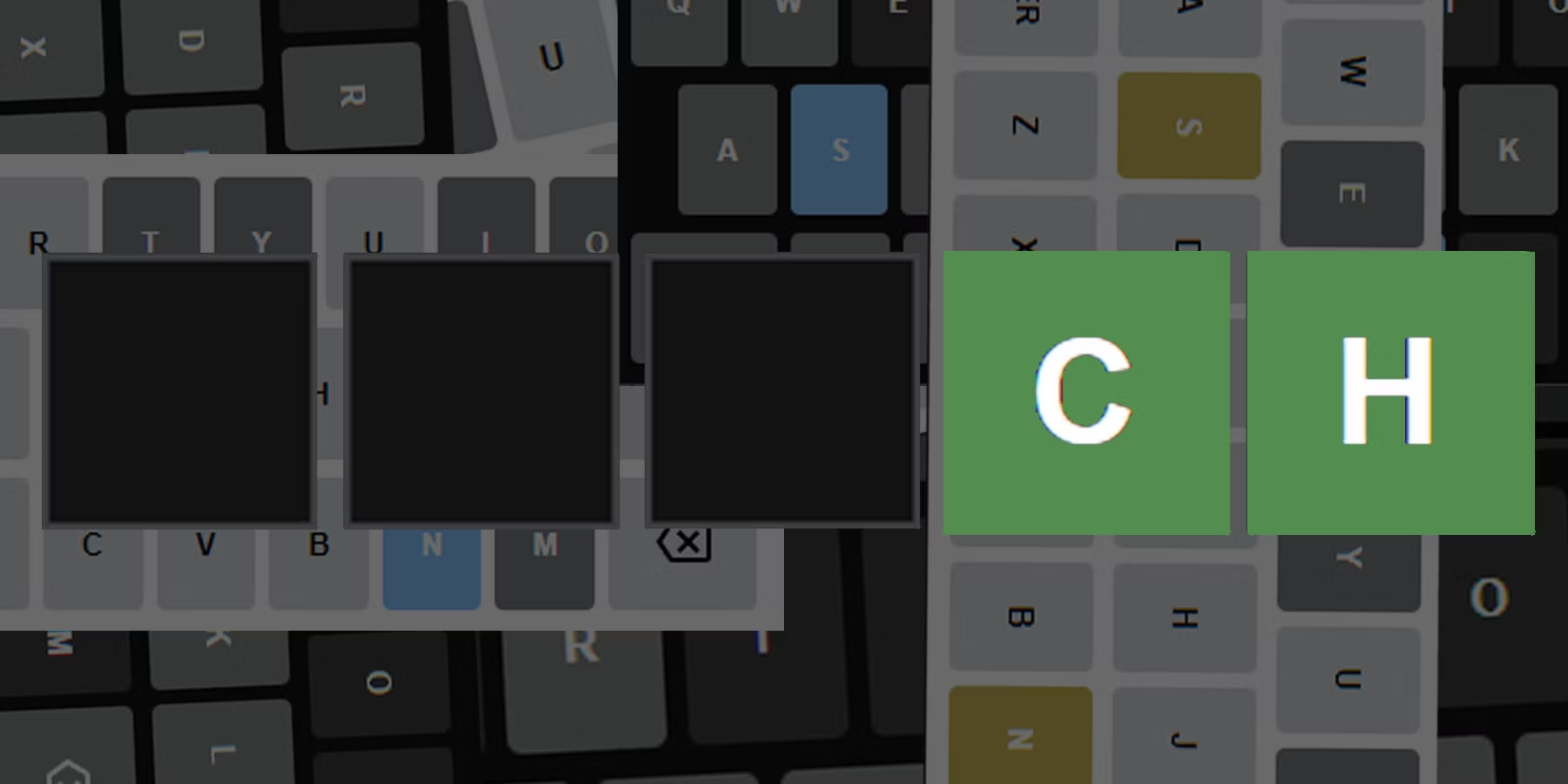
1. Wordle
- Start with Common Consonants: If you suspect that the word you’re trying to guess ends in “CH”, start by trying out words that begin with common consonants like “B”, “C”, “M”, or “S” (e.g., “BRICH”, “CRICH”, “MATCH”, “STICH”). These patterns are more likely to occur and help you eliminate or confirm letters.
- Leverage Vowel Placement: Words ending in “CH” often have a vowel either in the middle or near the beginning (e.g., “BEACH”, “PEACH”). Consider this when choosing your guesses to narrow down the possibilities.
- Guess Efficiently: Use 5-letter words ending in “CH” to test for both the ending and potentially one or two other letters that could fit earlier in the word. This can help you maximize the information gained from each guess.
2. Scrabble
- Maximize Points: In Scrabble, placing a 5-letter word that ends in “CH” on a double or triple word score can lead to a significant point boost. Since “CH” is a fairly high-scoring ending, try to place these words strategically on the board.
- Hook Words: Look for opportunities to add to an existing word on the board. For example, if “TOUCH” is already on the board, you might be able to extend it with another letter to create a longer word or use it as part of a cross word.
- Control the Board: Using 5-letter words ending in “CH” can help you control the board by limiting your opponent’s options for high-scoring placements. Since these words often require specific letter placements, they can effectively block your opponent from using premium squares.
3. Crossword Puzzles
- Clue Interpretation: In crossword puzzles, clues for 5-letter words ending in “CH” might refer to the word’s meaning or a common phrase. Pay attention to the context of the clue to determine the word. Clues might be descriptive (e.g., “a place to relax at the shore” for “BEACH”) or play on the sound (e.g., “a perfect match”).
- Pattern Recognition: If you already have some letters filled in from crossing words, use that information to deduce which 5-letter word ending in “CH” fits. Common patterns like “_A_CH” or “_I_CH” can help you quickly narrow down your options.
- Crossword-specific Vocabulary: Some 5-letter words ending in “CH” are more commonly used in crossword puzzles than in everyday language. Familiarize yourself with these to make solving puzzles easier. Words like “FINCH” (a type of bird) or “PINCH” (a small amount) often appear in crosswords.
Conclusion
In the conclusion, you’ll briefly recap the main points discussed in the article, encouraging readers to practice and use the 5-letter words ending in “CH” in their games or daily life. You’ll also invite them to engage further, like sharing their own tips or favorite words.
FAQ’s
1. What are some common 5-letter words ending in “CH”?
- Some common examples include “beach,” “lunch,” “batch,” “march,” and “pouch.”
2. How can 5-letter words ending in “CH” be useful in Wordle?
- These words can help you narrow down possible letters and patterns, especially when you know the word ends in “CH.”
3. What are some high-scoring Scrabble words ending in “CH”?
- “Quich” and “curch” are examples of higher-scoring words due to the inclusion of higher-point letters like Q and C.
4. Are there any unusual or rare 5-letter words ending in “CH”?
- Yes, words like “dunch” (to nudge) and “natch” (short for naturally) are less common.
5. Can these words be pluralized?
- Typically, 5-letter words ending in “CH” are not pluralized by simply adding an “S” (e.g., “lunches,” “benches”).
6. What are some strategies for remembering these words?
- Use mnemonic devices or focus on common prefixes that pair with “CH,” like “be-” or “ma-.”
7. Why are words ending in “CH” important in word games?
- They can help complete word patterns, making it easier to solve puzzles or earn points.
8. What prefixes are commonly used with “CH” endings?
- Common prefixes include “ba-” (batch), “ca-” (catch), and “ma-” (march).
9. Are there any words ending in “CH” that have different meanings based on context?
- Yes, for example, “march” can refer to the month or a type of walk.
10. How can I practice using 5-letter words ending in “CH”?
- You can play word games, use flashcards, or engage in online word puzzles to reinforce these words.
11. Do any of these words have irregular plural forms?
- Some words like “lunch” become “lunches,” following regular pluralization rules.
12. What are some tricky 5-letter words ending in “CH”?
- Words like “butch” (meaning strong or masculine) can be tricky due to less common usage.
13. Can I use these words in everyday conversation?
- Yes, many of these words, like “bench” or “teach,” are common in daily language.
14. How often do words ending in “CH” appear in crossword puzzles?
- Quite often, especially as the answer to clues hinting at actions or objects.
15. Are there any 5-letter words ending in “CH” that are also verbs?
- Yes, words like “latch,” “teach,” and “march” can function as verbs.
16. What’s a good starting word in Wordle that ends with “CH”?
- “March” is a good option because it includes common letters and ends with “CH.”
17. What are some less obvious 5-letter words ending in “CH”?
- Words like “cinch” (something easy) and “finch” (a type of bird) might not be immediately obvious.
18. Do these words share common roots or origins?
- Some share Germanic roots, while others might come from Old English or Latin.
19. Are there any themed groups of these words?
- Yes, you could group them by theme, like animals (“finch,” “roach”) or actions (“latch,” “pitch”).
20. Where can I find more 5-letter words ending in “CH”?
- You can use word solver tools, dictionaries, or word lists available online for more examples.
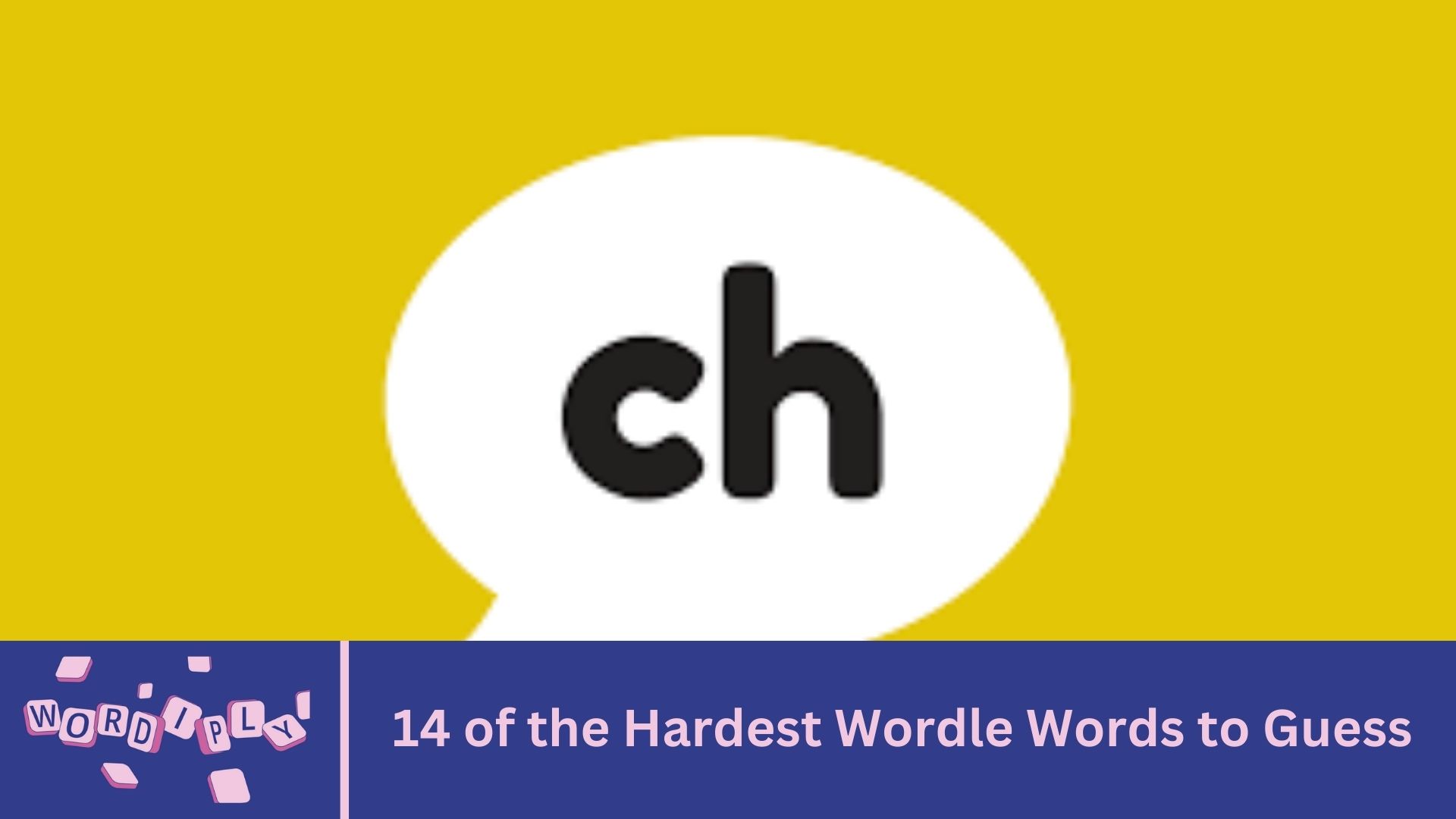
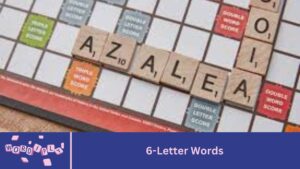

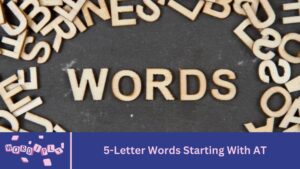


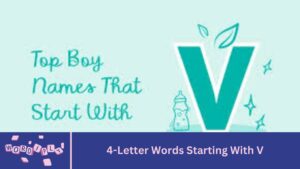
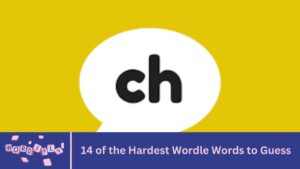
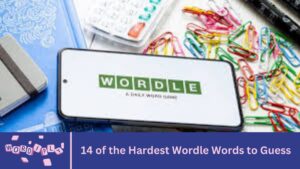

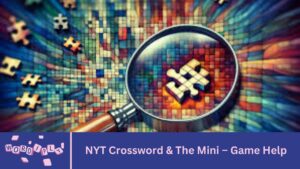
![Science Fiction Book Sales Statistics [2023]](https://wordiplypro.com/wp-content/uploads/2024/09/Add-a-heading-17-300x169.jpg)



